
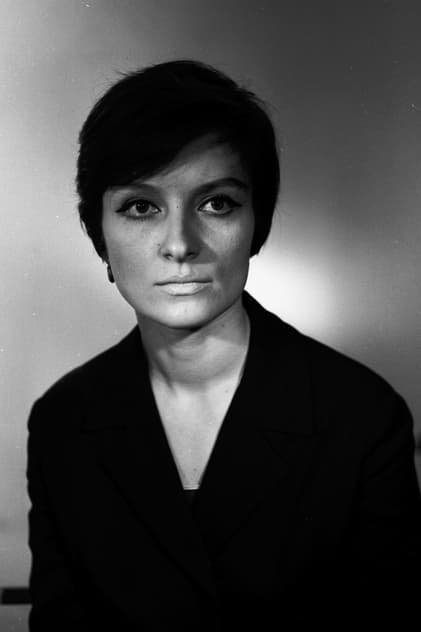
Larisa Shepitko
Born: January 6, 1938
Died: July 2, 1979
in Artyomovsk, Ukrainian SSR, USSR [now Artemivsk, Donetsk Oblast, Ukraine]
Died: July 2, 1979
in Artyomovsk, Ukrainian SSR, USSR [now Artemivsk, Donetsk Oblast, Ukraine]
From Wikipedia, the free encyclopedia.
Larysa Efimovna Shepitko (6 January 1938, Artemivsk, Ukrainian SSR – 2 June 1979, Kalinin Oblast) was a Ukrainian Soviet film director. She went to the All-Union State Institute of Cinematography in Moscow as a student of Olexander Dovzhenko. She was a student of Dovzhenko's for 18 months until he died in 1956. Shepitko graduated from VGIK in 1963 with her prize winning diploma film Heat, made when she was 22 years old. It tells the story of a new farming community in Central Asia during the mid 1950s.
Shepitko's next film Wings concerns a much-decorated female fighter pilot of World War II. The pilot, now principal of a vocational college, is out of touch with her daughter and the new generation. The film aroused considerable Soviet press controversy at the time, as films were not meant to depict conflicts between children and parents (Vronskaya, 1972 p 39).
Shepitko's third film was You and I (1971). This was her only film in colour. It was favourably received at the Venice Film Festival, but lacked proper public exposure in the Soviet Union.
The Ascent (1976) was her last film and the one which garnered the most attention in the West. In it, Shepitko returns to the sufferings of World War II, chronicling the trials and tribulations of a group of partisans in Belarus in the bleak winter of 1942. Two of the partisans are captured by the Nazis and then interrogated by a local collaborator, played by Anatoly Solonitsyn, before one of them is executed in public. This depiction of the martyrdom of the Russians owes much to Christian iconography. The Ascent won the Golden Bear at the 27th Berlin International Film Festival in 1977.
Shepitko's growing international reputation led to an invitation to serve on the jury at the 28th Berlin International Film Festival in 1978. However, she was unable to complete any other films. Shepitko died in a car crash with four members of her shooting team in 1979 while scouting locations for her planned adaptation of the novel Farewell to Matyora, by Valentin Rasputin. Her husband Elem Klimov, also a film director, finished the work for her.
Description above from the Wikipedia article Larisa Shepitko, licensed under CC-BY-SA, full list of contributors on Wikipedia.
Larysa Efimovna Shepitko (6 January 1938, Artemivsk, Ukrainian SSR – 2 June 1979, Kalinin Oblast) was a Ukrainian Soviet film director. She went to the All-Union State Institute of Cinematography in Moscow as a student of Olexander Dovzhenko. She was a student of Dovzhenko's for 18 months until he died in 1956. Shepitko graduated from VGIK in 1963 with her prize winning diploma film Heat, made when she was 22 years old. It tells the story of a new farming community in Central Asia during the mid 1950s.
Shepitko's next film Wings concerns a much-decorated female fighter pilot of World War II. The pilot, now principal of a vocational college, is out of touch with her daughter and the new generation. The film aroused considerable Soviet press controversy at the time, as films were not meant to depict conflicts between children and parents (Vronskaya, 1972 p 39).
Shepitko's third film was You and I (1971). This was her only film in colour. It was favourably received at the Venice Film Festival, but lacked proper public exposure in the Soviet Union.
The Ascent (1976) was her last film and the one which garnered the most attention in the West. In it, Shepitko returns to the sufferings of World War II, chronicling the trials and tribulations of a group of partisans in Belarus in the bleak winter of 1942. Two of the partisans are captured by the Nazis and then interrogated by a local collaborator, played by Anatoly Solonitsyn, before one of them is executed in public. This depiction of the martyrdom of the Russians owes much to Christian iconography. The Ascent won the Golden Bear at the 27th Berlin International Film Festival in 1977.
Shepitko's growing international reputation led to an invitation to serve on the jury at the 28th Berlin International Film Festival in 1978. However, she was unable to complete any other films. Shepitko died in a car crash with four members of her shooting team in 1979 while scouting locations for her planned adaptation of the novel Farewell to Matyora, by Valentin Rasputin. Her husband Elem Klimov, also a film director, finished the work for her.
Description above from the Wikipedia article Larisa Shepitko, licensed under CC-BY-SA, full list of contributors on Wikipedia.
Movies for Larisa Shepitko...

Title: Talks with Larisa
Released: December 31, 1999
Type: Movie
This 1999 program, broadcast on the Russian television channel Kultura, features an introduction by filmmaker Elem Klimov and film critic Irina Rubanova to an interview with director Larisa Shepitko that was recorded just after the 1978 Berlin International Film Festival.

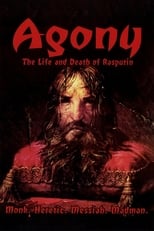
Title: Agony: The Life and Death of Rasputin
Released: September 1, 1981
Type: Movie
Russian monk Grigori Rasputin rises to power, which corrupts him along the way. His sexual perversions and madness ultimatly leads to his gruesome assasination.

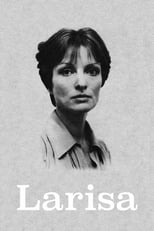
Title: Larisa
Character: Self (archive footage)
Released: October 1, 1980
Type: Movie
Elem Klimov's documentary ode to his wife, director Larisa Shepitko, who was killed in an auto wreck.

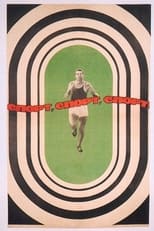
Title: Sport, Sport, Sport
Released: June 6, 1970
Type: Movie
A half-fiction half-documentary story about sport and it's importance in everyday life.

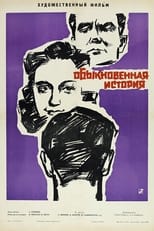

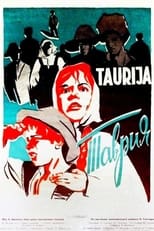
Title: Tavria
Character: Hanna
Released: September 1, 1960
Type: Movie
1914, Imperial Russia. A group of Ukrainian peasants searching for a better life in the Taurida steppe end up working at the landholding of the aristocratic Falz-Fein family. Friends Vustya and Hanna are courted by a revolutionary and the landowner's son, both rising their hopes and dreams.

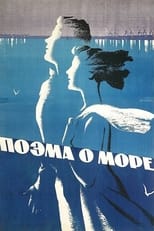
Title: Poem of the Sea
Released: November 4, 1958
Type: Movie
A Soviet dam project means that many old Ukrainian villages will end up under water. There are conflicts between the dam engineers and villagers who don't want to move.

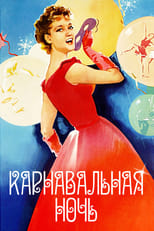
Title: Carnival Night
Character: guest
Released: December 29, 1956
Type: Movie
It is the New Year's Eve and the employees of an Economics Institute are ready with their annual New Year's entertainment program. It includes a lot of dancing and singing, jazz band performance and even magic tricks. Suddenly, an announcement is made that a new director has been elected and that he is arriving shortly. Comrade Ogurtsov arrives in time to review and disapprove of the scheduled entertainment. To him, holiday fun has a different meaning. He imagines speakers reading annual reports to show the Institute's progress over the year, and, perhaps, a bit of serious music, something from the Classics, played by the Veterans' Orchestra. Obviously, no one wants to change the program a few hours before the show, much less to replace it with something so boring! Now everyone has to team up in order to prevent Ogurtsov from getting to the stage. As some of them trap Ogurtsov one way or another, others perform their scheduled pieces and celebrate New Year's Eve.
